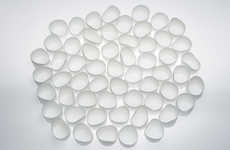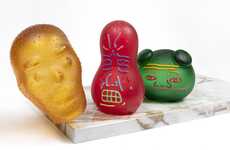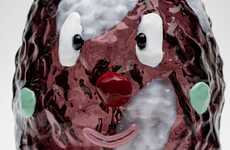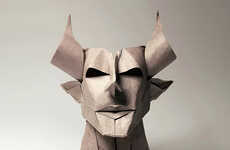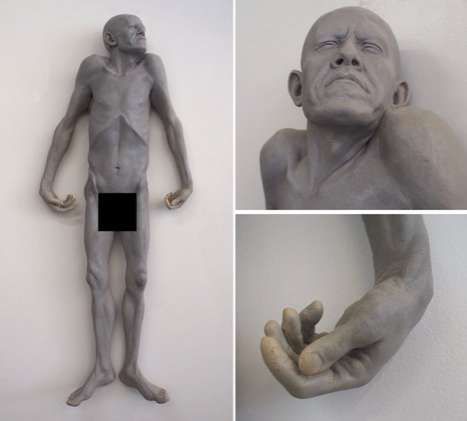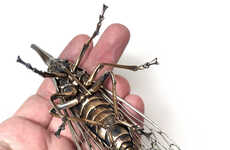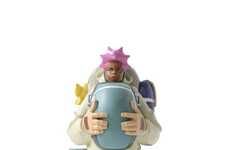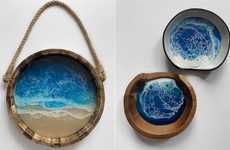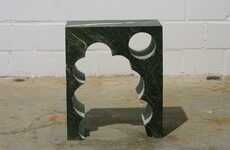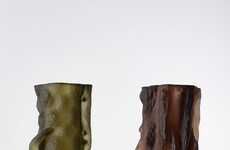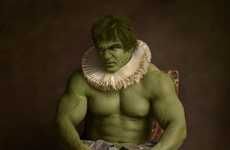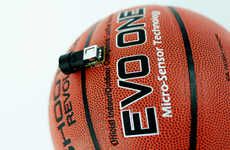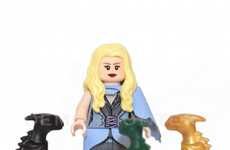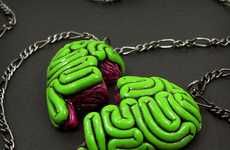
John O'Reilly Creates Astounding Biological Artworks
Meghan Young — March 3, 2012 — Unique
References: johnoreilly.org & coolhunting
John O'Reilly's work is impressive for many reasons. At first glance, it is the obvious care and dedication that was put into the detailed sculptures that amazes audiences. Nevertheless, it is the material used to create the sculptures that end up really flooring onlookers. Made out of ground-up bones mixed with polyrethane resin and porcelain dust, John O'Reilly's work is a series of biological sculptures. The bones come from his dog's leftovers (he does not moonlight as a grave digger or serial killer).
Based in Brooklyn, New York, John O'Reilly uses silicone molds to cast his stunning sculptures. He reflects, "My work has become an autobiographical expression of my interests and experience in natural history and religion. Drawing from these encounters and curiosities, I manifest my own narratives."
Based in Brooklyn, New York, John O'Reilly uses silicone molds to cast his stunning sculptures. He reflects, "My work has become an autobiographical expression of my interests and experience in natural history and religion. Drawing from these encounters and curiosities, I manifest my own narratives."
Trend Themes
1. Biological Sculptures - The use of ground-up bones and other organic materials in sculptures presents an opportunity for artists to explore the intersection of art and biology.
2. Mixing Materials - The combination of unconventional materials like ground-up bones with traditional sculpting mediums like resin and porcelain dust creates unique opportunities for experimentation and innovation.
3. Autobiographical Art - Artwork that reflects personal experiences and interests, such as John O'Reilly's sculptures, offers a way for artists to connect with audiences on a deeper and more personal level.
Industry Implications
1. Art and Sculpture - The art industry can explore the use of unconventional materials and autobiographical themes to create innovative and thought-provoking sculptures.
2. Biotechnology - The biotechnology industry can find inspiration in the fusion of biology and art, potentially leading to new applications and materials for medical and scientific purposes.
3. Museum and Exhibition - Museums and exhibitions can showcase and promote the use of ground-up bones and other organic materials in sculptures, providing a platform for artists to push the boundaries of traditional art forms.
4.8
Score
Popularity
Activity
Freshness


